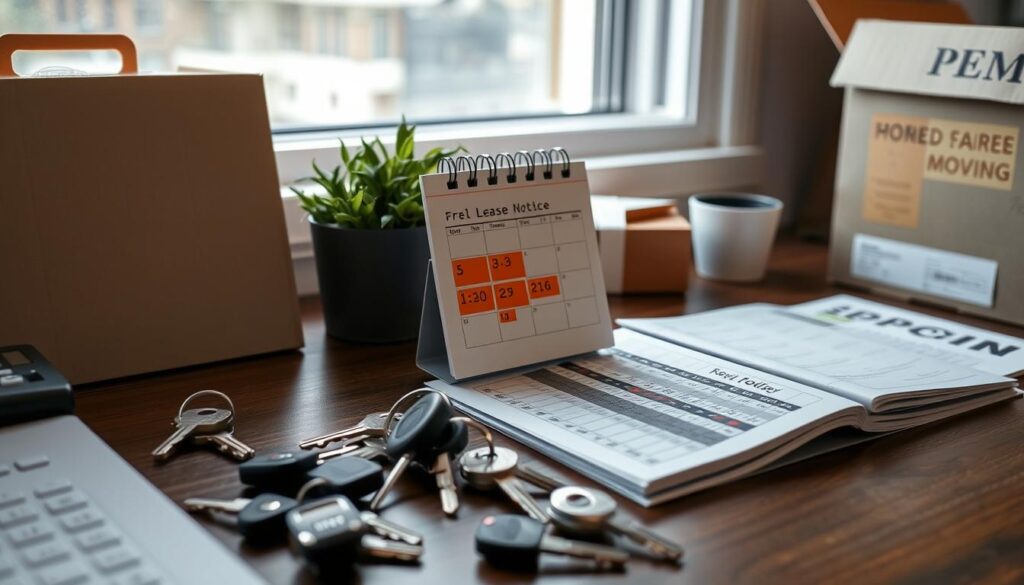How soon should I look for an apartment? Timing can be the secret to a stress-free move. Starting your search at the right moment helps avoid unnecessary stress and ensures you have enough options. For local moves, it’s best to begin looking for an apartment two to three months before your desired move-in date. This timeframe allows you to compare prices, tour potential apartments, and handle the application process with ease. However, if you’re relocating to a different state, give yourself a longer window—around four to six months. This additional time helps with planning logistics and gives you flexibility to manage the complexities of a long-distance move.
Finding the right balance is key. Starting too early might not benefit you as much as you’d think since landlords might not hold a unit for long. Conversely, starting too late could limit your choices and add unnecessary pressure. Striking a middle ground ensures you’re not rushed while also securing the right apartment without hassle.
Ideal Timeframe to Start Your Apartment Search
Finding the perfect apartment takes planning. Knowing when to start is key, whether you’re staying local or moving out-of-state. The right timing helps you get the best deals and avoid stress.
Local Moves: When to Begin
For a local apartment search, start 30 to 60 days before your lease ends. This gives you time to look at different places, compare features, and plan tours. Try to visit 2-3 apartments each day to stay organized.
Apartment tours usually last 30 minutes to an hour. This is enough time to ask about utilities, the neighborhood, and other important details. If you need to move fast, focus on a few neighborhoods and top buildings. Early negotiations can also help lower rent or get better lease terms.
Out-of-State Moves: Extended Timeline
For an out-of-state relocation, start four to six months early. This extra time helps with the complex move, including researching neighborhoods and planning logistics. Moving to a competitive market might take longer to find the right place.
Do your homework on average rents in your area. This can help you negotiate better. Use trusted rental sites to avoid scams. Always visit places in person and ask lots of questions.
Out-of-state moves mean extra money for travel, background checks, and deposits. Using services like AptAmigo can help you find the right place faster. This makes the process easier and less stressful.
Navigating Lease Notice Periods
Knowing your lease notice period is key for a smooth move. Whether you have a month-to-month or a fixed-term lease, understanding your rental agreement is crucial. It helps you end leases right and avoid problems.
Month-to-Month Leases
Month-to-month leases are flexible, needing only a 30-day notice to leave. They let you change your living situation easily. But, it’s important to give your landlord the required notice to avoid fines.
Fixed-Term Leases
Fixed-term leases, however, have longer notice periods, often 60 or 90 days. Most landlords want a 60-day notice to leave. This means you must plan your move carefully. If you miss the notice deadline, you might face fines or keep paying rent on a place you’re leaving.
By ending leases correctly, you make moving easier. This lets you focus on finding your next home.
A comparative look at the differences:
| Lease Type | Notice Period | Flexibility |
|---|---|---|
| Month-to-Month | 30 days | High |
| Fixed-Term | 60-90 days | Low |
By following these rental agreement terms, you ensure a hassle-free move. Ending leases properly lets you enjoy the excitement of finding your next place.
Understanding the Rental Market Fluctuations
Understanding rental market trends is key. Knowing when to rent can affect both availability and cost. The summer and winter months have different dynamics, impacting your search.
Summer vs. Winter Rentals
Summer, from May to September, has the most apartments available. This is because many people move during this time. The warm weather and school breaks increase demand, making it a busy season.
Winter, from October to April, has fewer options but lower prices. After the holidays, demand drops, leading to lower rates. This is a good time to find deals.
| Season | Inventory | Rental Rates | Demand |
|---|---|---|---|
| Summer (May – September) | High | High | High |
| Winter (October – April) | Low | Low | Low |
| Peak Demand Months | Spring and Summer due to school breaks and better weather | ||
| Lowest Demand Months | January to March following the holiday season | ||
Rental prices vary by city. For example, San Antonio and Seattle saw price drops. But Las Vegas and Houston saw increases. In New York City, one-bedroom rents fell by over 12%, while two-bedroom rents rose by more than 16%.
To find your dream apartment, start looking at the end of the month before you want to move. This is when most tenants give notice. Also, waiting until the second week of the move-in month can help, as landlords may be more eager to rent.
Evaluating Job and Income Stability
Your financial readiness for renting depends a lot on your job stability and steady income. Knowing what landlords look for can help you make smart choices. They usually ask for income proof like pay stubs, W-2 forms, and bank statements.
Landlords often say rent should not be more than 30% of your income. This “30% rule” shows they want you to be able to pay rent without money troubles. Having a stable job and steady income makes them trust you to pay rent on time.
If your job might change soon, wait until it settles down before looking for an apartment. Landlords want to see proof of your income, like employment letters and tax returns. These documents show your financial stability, especially if you’ve recently changed jobs.
Here’s a detailed table showcasing some common and effective income verification documents:
| Document | Description | Usage |
|---|---|---|
| Pay Stubs | Recent 2-3 months’ worth showing regular income. | Commonly requested to verify a steady income flow. |
| W-2 Forms | Annual income report from employers. | Provides long-term perspective on job stability. |
| Bank Statements | Real-time insight into income deposits and expenses. | Used to verify overall financial readiness for renting. |
| Employment Verification Letters | Confirmation of position, salary, and employment duration. | Offers context on job stability. |
| Social Security Statements | Proof of government benefits as income. | Critical for retired or disabled applicants. |
| Workers’ Compensation Letters | Benefits received due to work-related injuries. | Short-term proof of income, not a long-term solution. |
Rental application fraud is common, with 93.3% of property owners facing it. Make sure your documents are real. If you work in non-traditional ways, like freelancing, use 1099 forms and bank statements. Your goal is to show a clear and honest picture of your finances.
Impact of Life Changes on Your Moving Timeline
Big life changes like new jobs and family updates can really affect your moving plans. Knowing when to start looking for a new place can make things easier. It helps you move smoothly.
New Job Opportunities
Planning a move for a new job is key. Look into the job market in your new city. Check out industry stats and the jobless rate. See how your salary might change.
Job moves might mean living closer to work. Or finding cities with big tech scenes if you’re in tech. Dr. Sarah Johnson says feeling anxious is normal and helps you prepare.
It takes 3 to 6 months to feel at home, a study found. This time helps you adjust.
Family Changes
When your family grows, you might need more space. Look into local schools. Think about public vs. private, ratings, and how far they are from your home.
Also, compare living costs in different cities. Dr. Emma Wilson says making new friends and routines is key. This helps your family settle in better.
Steps to Take Before Starting Your Apartment Hunt
Starting your apartment search with a plan makes it easier and less stressful. First, focus on planning your budget and getting ready for your search. This will help you find the right place faster.
Setting a Budget
Start by understanding your finances. Decide how much you can spend on rent, utilities, and other costs. Look at your income, monthly bills, and savings to set a budget. This way, you can look at apartments that fit your budget.
Researching Neighborhoods
It’s important to research neighborhoods before you start looking. Look at safety, amenities, commute times, and lifestyle to find the best area. Being open to different areas can help you find a better deal.
Start looking for an apartment about 60 days before you want to move. Here’s a timeline to help you prepare:
| Timeframe | Action Items |
|---|---|
| 90 Days Before | Identify potential neighborhoods, understand market conditions, start setting a budget. |
| 60 Days Before | Begin contacting landlords, schedule viewings, continue rental budget planning. |
| 30 Days Before | Finalize apartment choice, complete application process, pay move-in fees, and security deposit. |
By focusing on budget planning and neighborhood research, you’ll have a smoother search. This preparation is key to finding an apartment that’s right for you.
How Soon Should I Look for an Apartment?
Finding the perfect apartment takes time. It’s best to start looking one to two months before you move. The exact time needed can change based on when you’re moving and other factors.
For local moves, start looking two to three months ahead. This gives you enough time to find a good place and prepare. If you’re moving out of state, you might need four to six months. This is because of the longer distance and possible challenges.
Keep in mind the rental market’s seasons. Summer is busy and prices are high. Winter, however, is less crowded and you might find better deals.
Here’s a quick guide to help you plan:
| Season | Market Trends |
|---|---|
| Summer | Highest rent prices, increased competition |
| Winter | Lower demand, better deals |
| Fall | Cooling rent prices, best time to start searching |
| Spring | Moderate demand, preparing for peak summer season |
Plan your move carefully. Give your current landlord 30 days’ notice. Also, gather important documents like proof of income and renters insurance. Visiting apartments 30 days before moving helps check the property’s condition.
Effective Strategies for Apartment Hunting
Apartment hunting can feel overwhelming. But, with smart strategies, you can find your perfect home. Here are some effective apartment hunting strategies to consider.
Utilizing Rental Apps
Rental apps are a great way to search for apartments. Sites like Zillow and Trulia have huge databases of apartments. You can filter by price, location, and amenities.
These apps also save your rental application info. This makes filling out applications faster and easier.
Setting Up Alerts
Setting up personalized alerts is key. Zillow, Trulia, and other apps let you get notifications for new listings. This way, you won’t miss out on great deals.
Personalized alerts are especially helpful in busy rental markets. Properties get taken fast, so stay alert.
Make a checklist of must-have apartment features. Landing offers over 7,000 apartments with flexible leases. You can switch properties with just 30 days’ notice.
When applying for rentals, have all your documents ready. This includes tax returns, income proof, and references. Having these documents ready helps you quickly secure your apartment.
Dealing with the Emotional and Physical Aspects of Moving
Relocating is often as stressful as big life changes like divorce. Moving three times in four years shows that dealing with moving stress needs emotional and practical steps. Start planning your move six to eight weeks early, looking into temporary places to stay.
Managing Stress Levels
Keeping stress in check during a move is key. Make sure to take care of yourself to avoid burnout. Common signs of moving stress include physical issues like chest pain and headaches, and mental ones like poor focus and negative thoughts.
Try calming activities and don’t be afraid to ask for help from family or professionals. This can make the move less overwhelming.
“Moving house considered one of the biggest causes of stress in individuals, making emotional preparation essential to handle the anxiety and apprehension associated with moving.”
Temporary Housing Solutions
Looking into temporary accommodation can make your move easier. Places like WoodSpring Suites® offer affordable, comfy stays with useful amenities. Having your old and new leases overlap by a week helps with a smoother transition.
| Temporary Accommodation | Benefits |
|---|---|
| Extended-Stay Hotels | Access to amenities, housekeeping, and flexible stay durations. |
| Short-Term Rentals | Provides a home-like environment with more privacy and space. |
Whether you’re looking at temporary housing or getting ready emotionally, knowing the challenges and planning well can make your move smoother. This makes your journey to your new home easier.
Conclusion
Finding the right time to start looking for an apartment is important. It makes your search successful and stress-free. First, check your current lease and job situation. Month-to-month leases are flexible but might cost more, especially for small apartments.
Knowing the rental market and when to search can help a lot. Searching in winter can be better than summer. Also, getting ready for the emotional and physical parts of moving is key. Use technology to find apartments and research neighborhoods to make your search easier.
Also, consider life changes like new jobs or having a family. Before moving, do a move-in check, give notice, and plan for temporary housing. These steps help make your move smooth and improve your rental history and credit score. With these tips, your apartment search will end well, starting a new chapter in your life.







